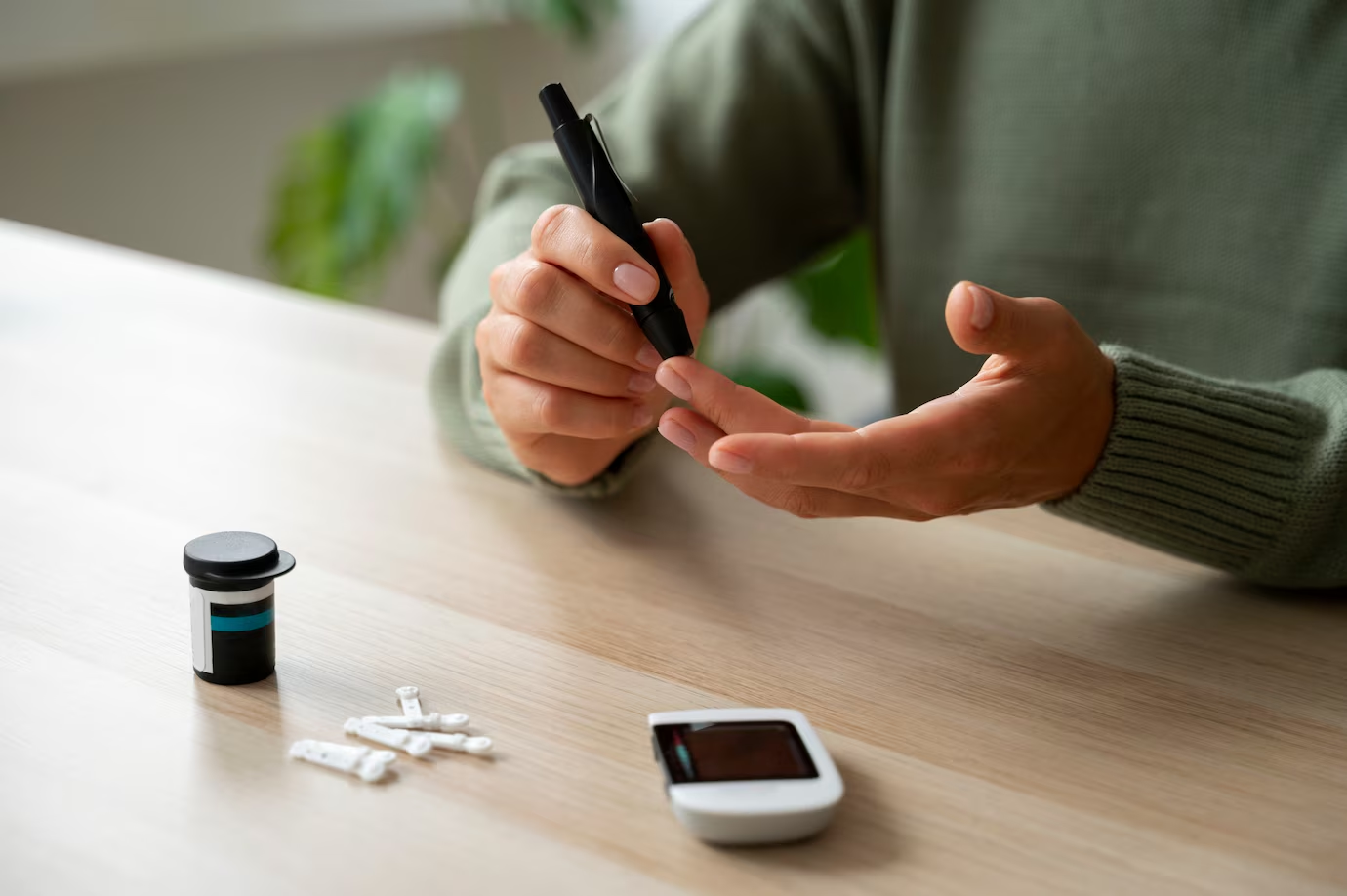Diabetes is a condition that affects how the body processes blood glucose, commonly referred to as blood sugar. Managing diabetes effectively requires understanding its nature, maintaining a balanced lifestyle, and accessing appropriate medical care for tasks like diabetic wound care. This article covers the basics of diabetes prevention and treatment, offering insights into management strategies and available resources.
Conditions Caused By Diabetes
Diabetes can lead to several complications if not managed appropriately. Persistent high blood sugar levels may affect the nerves, kidneys, eyes, and cardiovascular system. If left unchecked, diabetes can lead to other diseases. These potential complications make it necessary to adopt measures to manage and monitor diabetes.
Tips for Diabetes Management
Diet and Exercise
A balanced diet that includes whole grains, vegetables, lean proteins, and healthy fats can support better blood sugar levels. Avoiding processed foods and sugary beverages may also help in managing weight and glucose levels. Exercise, including activities like walking, swimming, or cycling, contributes positively to blood sugar control and overall health.
Blood Sugar Monitoring
Regular monitoring of blood glucose levels provides insights into how well the condition is being managed. This may involve using a glucose meter or continuous glucose monitoring devices. Maintaining an awareness of blood sugar readings assists in making informed dietary, activity, and medication decisions.
Regular Check-Ups
Routine doctor visits enable early identification of any complications or adjustments needed to the treatment plan. Regular checks might include HbA1c tests to monitor long-term blood sugar control and assessments for blood pressure, cholesterol, and kidney function. For some individuals, maintaining target blood sugar levels might require oral medication, injectable therapies, or insulin. Adherence to prescribed medications and discussions with healthcare providers about potential side effects are key components of effective management.
Tips for Diabetic Wound Care
Wounds or injuries on the skin can be challenging for individuals with diabetes because high blood sugar levels may slow down the healing process. The following practices can help reduce risks associated with diabetic wound care:
- Inspect the Skin Regularly
Checking for cuts, blisters, or other skin injuries daily helps address wounds early. Cleaning the wounds promptly and keeping them covered promotes healing and reduces infection risks.
- Maintaining Skin Hygiene
Washing with mild soap and keeping the skin moisturized minimizes dryness and cracking. Choosing socks and footwear that fit well and prevent rubbing can also offer protection.
- Seek Medical Attention for Complications
If wounds do not heal over time or signs of infection arise, consulting a healthcare professional is recommended to avoid worsening conditions.
Managing a Diabetic Diet
Meal Planning and Hydration
Dividing daily food intake into smaller, portion-controlled meals can help in keeping blood sugar levels stable. Foods rich in dietary fiber, such as oats, legumes, and fruits, support slower glucose absorption, which reduces spikes.Drinking sufficient water throughout the day assists in maintaining hydration and supporting kidney function. Sugary drinks and alcohol should be limited, as they can cause fluctuations in blood sugar levels.
Understanding Glycemic Index
The glycemic index (GI) assigns a value to foods based on how quickly they raise blood sugar levels. Choosing low-GI foods such as lentils, sweet potatoes, and non-starchy vegetables may contribute positively to better glucose management. Dieticians or certified diabetes educators can provide tailored advice on meal plans and dietary adjustments. Their expertise focuses on creating sustainable, enjoyable eating habits designed to meet individual needs.
Take the First Step Towards Better Management
Preventing and managing diabetic conditions involves adopting healthy lifestyle patterns. Patients can improve their prognosis by staying informed and accessing the right support. Whether it’s maintaining a healthy diet, staying active, or utilizing available medical resources, every step can lead to improved outcomes.
Consider consulting healthcare professionals or support groups to develop a personalized management plan. Address questions through regular communication with a medical team to ensure all aspects of prevention and treatment align with your unique needs. Managing diabetes is a continual process, but with informed strategies, you can avoid further complications.

